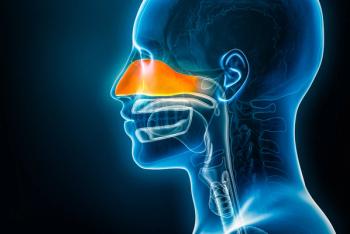
Researchers discover IPF biomarkers
In a large, mutli-center study, researchers discovered potential biomarkers for accurately assessing idiopathic pulmonary fibrosis (IPF) disease progression. The study, published in the March 11 issue of The Lancet Respiratory Medicine, was led by R. Gisli Jenkins, PhD, with the Division of Respiratory Medicine at the University of Nottingham in the United Kingdom. The PROFILE study was funded by GlaxoSmithKline R & D and the Medical Research Council.
In a large, mutlicenter study, researchers discovered potential biomarkers for accurately assessing idiopathic pulmonary fibrosis (IPF) disease progression.
The
There is an urgent need for IPF biomarkers that reflect disease activity, according to the researchers, to inform patient management and for use as biomarkers of therapeutic response (theragnostic biomarkers) in clinical trials. “We aimed to determine whether dynamic change in markers of extracellular matrix (ECM) turnover predicts progression of idiopathic pulmonary fibrosis as determined by change in forced vital capacity and death,” they wrote in The Lancet article.
The clinical trials they conducted included patients from with IPF or idiopathic non-specific interstitial pneumonia diagnosed within the preceding 6 months who were recruited from the University of Nottingham and the Royal Brompton Hospital in London. Changes in biomarker concentrations were related to subsequent progression of IPF (defined as death or decline in forced vital capacity greater than 10% at 12 months after study enrolment) using a repeated measures model.
Researchers found that baseline concentrations of 6 neoepitopes were significantly higher in patients with progressive IPF (n=32) than in those with stable disease (n=23). In addition, the 6 neoepitopes were significantly higher in patients with progressive IPF than in patients with stable IPF by 6 months. Baseline concentrations of 2 neoepitopes were associated with increased mortality.
“Concentrations of protein fragments generated by matrix
As a result, serial measurements of neoepitopes have potential to be used as theragnostic biomarkers in clinical trials and to guide management of IPF, according to the researchers.
Newsletter
Get the latest industry news, event updates, and more from Managed healthcare Executive.























